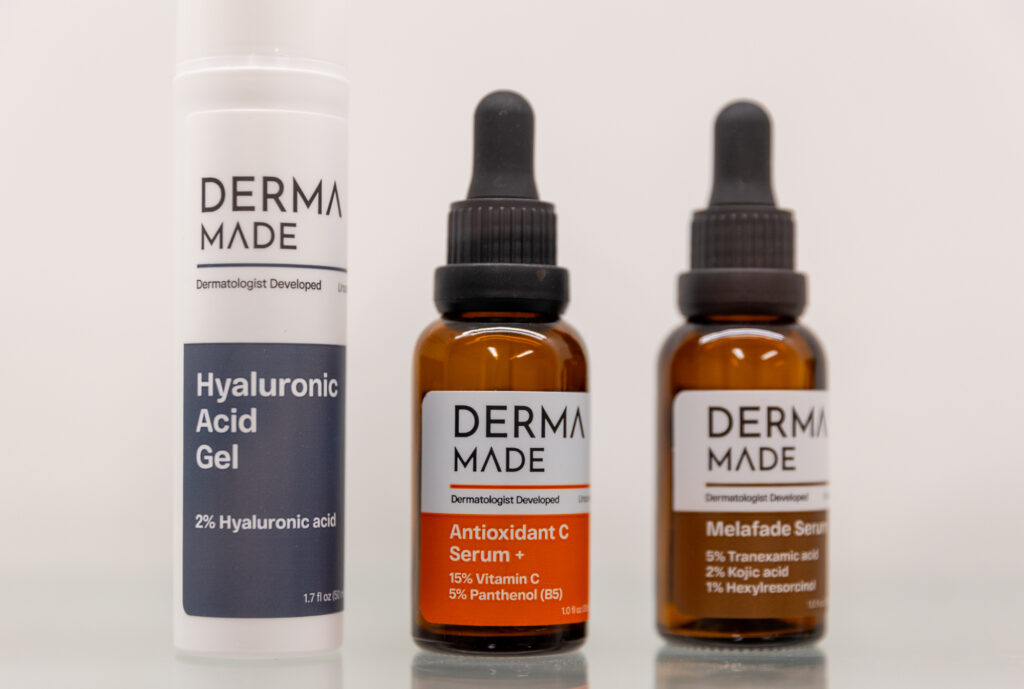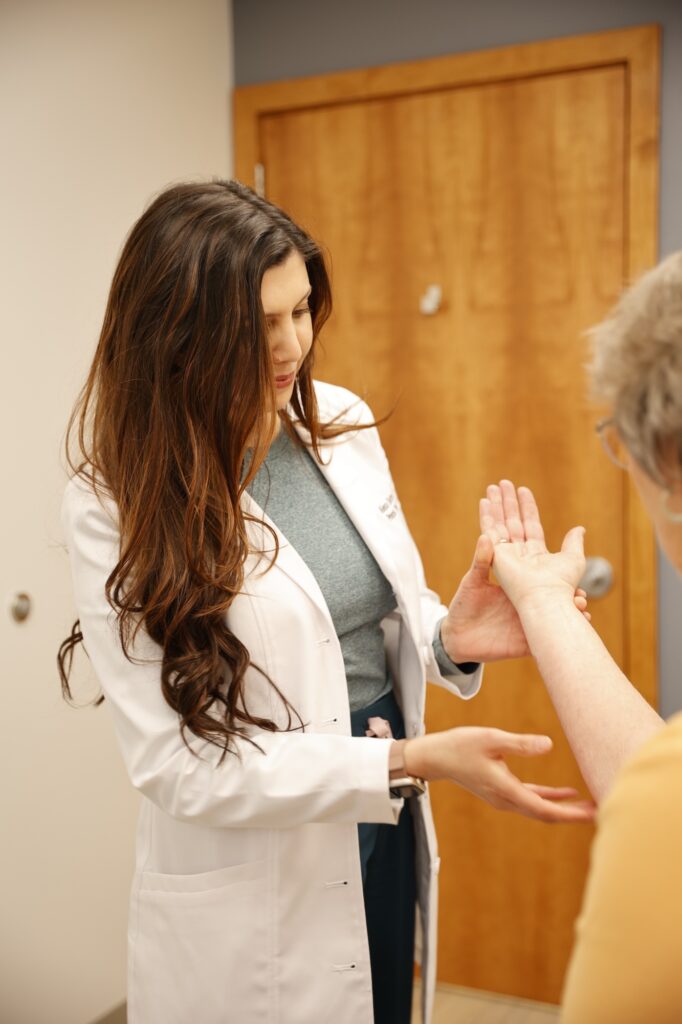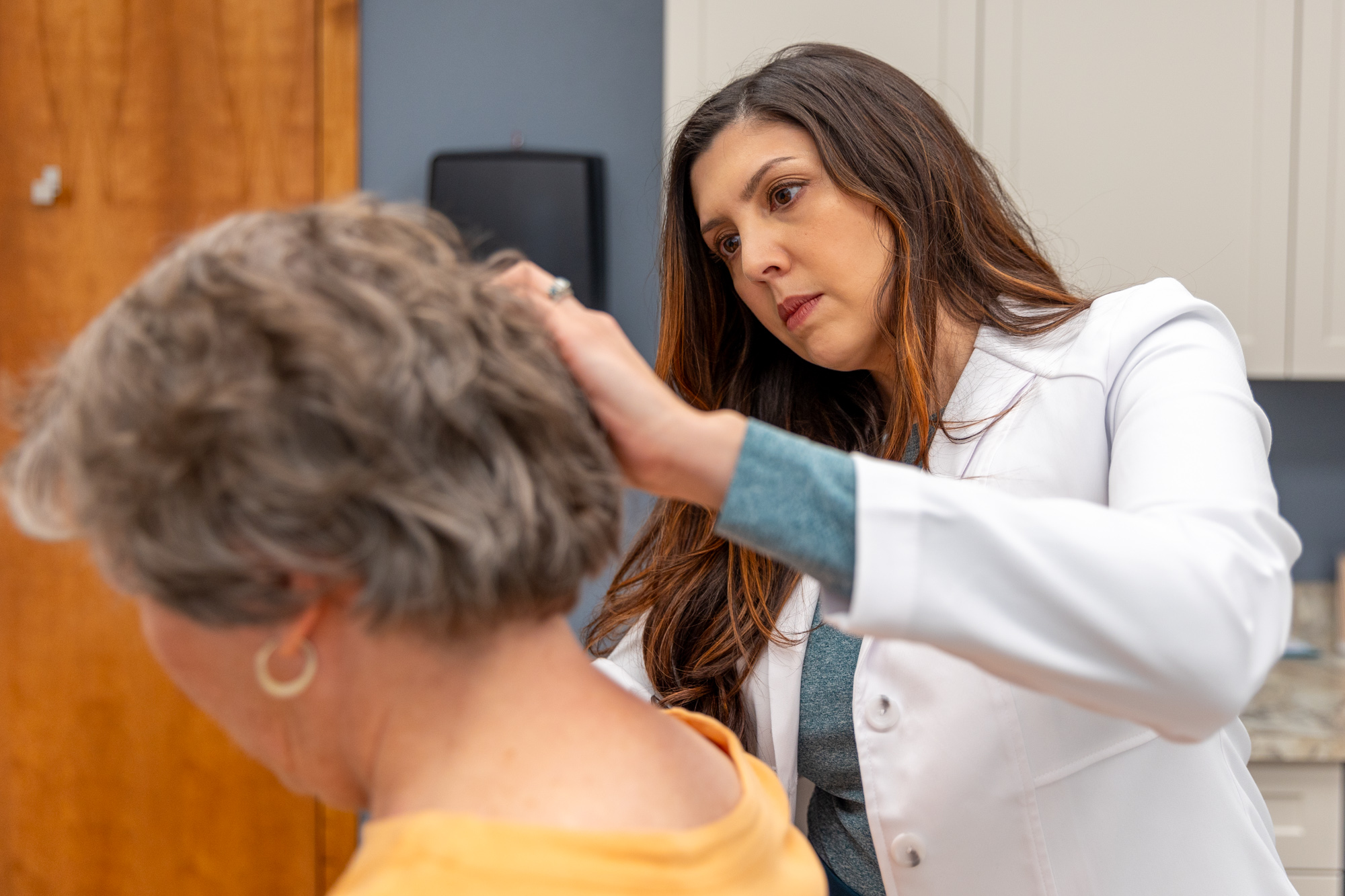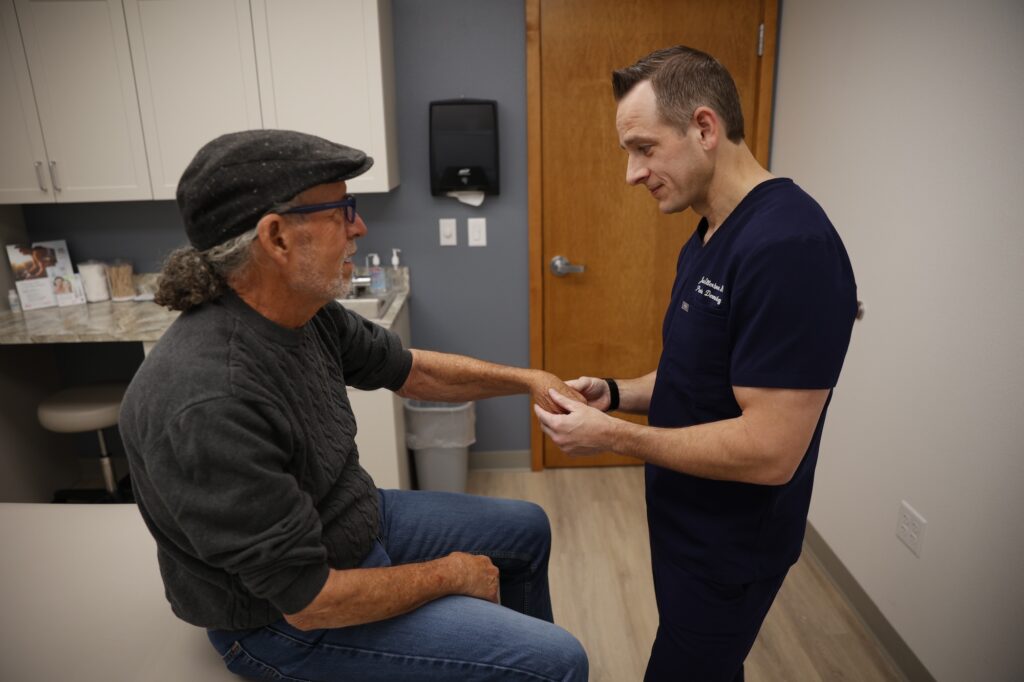You may have different symptoms depending on the type of eczema. The most common symptoms are dryness, flaky skin, and itchiness. The kind and severity of symptoms depend on the type of eczema. Your dermatology provider will examine the affected areas and discuss your symptoms with you to reach a diagnosis and form a plan for eczema treatment in Waterloo.
Put an End to Dry Skin


Eczema affects a large portion of the population, and it can be beyond irritating. Itchy, painful, chronic—showing up out of the blue and lasting for weeks or longer.
At Premier Dermatology, we have seen and treated dermatological conditions of all kinds. If you are looking for eczema treatment in Waterloo, we can help you get your eczema under control and finally find relief.
What Causes Eczema?
Genetics
If eczema runs in your family, unfortunately, you’re more likely to develop it too.
Environmental Triggers
Extreme temperatures and sudden changes in temperature or humidity are all potential eczema triggers.
Chemicals & Cleaning Products
Exposure to cleaning products and certain chemicals may cause an eczema flare-up.
Skin and Hair Product Ingredients
Strong fragrances or ingredients in some skin and hair products may trigger your eczema.
Certain Fabrics
Certain fabrics—particularly wool and synthetic fabrics—can irritate your skin.
Stress
Some people may notice flare-ups when they are feeling stressed.
About Premier Dermatology
Premier Dermatology is committed to providing exceptional care for your dermatology needs, including eczema treatment in Waterloo. Board-certified dermatologist Dr. Ellerbroek oversees our practice, allowing you to feel assured that we work with, and not against, your skin’s health. Our expertise makes us one of the foremost skincare providers in the region.

Frequently Asked Questions
Eczema can affect skin anywhere on your body, and the type of eczema also influences where symptoms occur. Generally, symptoms commonly occur on the hands, neck, elbows, ankles, knees, feet, and face.
Atopic dermatitis, the most common type of eczema, causes inflammation, dryness, and itchy skin. Contact dermatitis is caused by touching a substance that irritates your skin or causes an allergic response; symptoms include hives, blisters, patches of discolored skin, and itchiness. Dyshidrotic eczema also causes dryness but in combination with rashes, blisters, and a burning sensation. Neurodermatitis causes small, thick patches of itchy and scaly skin. Seborrheic dermatitis causes symptoms of eczema on the scalp. Nummular eczema causes circular lesions about the size of a coin that may itch and flake; these can appear all over the body, but most commonly on the arms and legs. Stasis dermatitis is more common in people with circulation issues. It causes itching, pain, swelling, and patches of discolored skin on the legs, much like varicose veins.
The best treatment for eczema will depend on your unique skin and type of eczema. At Premier Dermatology, we take the time to get to know you so that we can help you achieve your desired results and get clearer skin.
How soon after treatment you may start to feel better depends on the extent and severity of your eczema. Generally, with eczema treatment in Waterloo, an outbreak will clear up after a couple of weeks, but if the eczema persists and treatment is not helping, consult your doctor or a dermatologist.
Many people develop eczema for the first time in childhood, even in infancy. Some of these will grow out of eczema by the time they’re adults, while other people won’t develop eczema until they are into adulthood. Adult eczema most commonly develops in a person’s 20s or after age 50.
If your child is experiencing skin issues like eczema, there are some changes you can make at home to soothe ongoing cases and prevent future flare-ups. Apply moisturizers frequently on the affected areas. Try to maintain room temperature and humidity throughout your home; climate changes can dry out your child’s skin. Have some cotton clothes on hand and avoid wool, silk, and synthetic fabrics that may irritate your child’s skin. You can also use sensitive or unscented laundry detergent.
Try to help your child keep from itching the affected areas. If your child is in serious discomfort, or if treatment at home isn’t helping, schedule an appointment with your healthcare provider.


Learn More


Many home remedies for eczema may alleviate your symptoms for a time, but if you don’t know the type and cause of your eczema, you may not be treating it effectively. Additionally, many skin conditions present similar symptoms. Without qualified medical guidance, you may mistake your symptoms for another skin condition. Treatments designed for the wrong condition may cause symptoms to persist and even worsen.
An accurate diagnosis is the first step towards clearer skin. At Premier Dermatology, we understand the anatomy of the skin through and through, and we have the knowledge to assess and diagnose your skin condition accurately. Instead of masking symptoms, we can offer you eczema treatment in Waterloo that addresses the root cause. By soothing the source of your eczema, we can help reduce the severity and frequency of flare-ups.
In cases of severe eczema, treatment may take time. Several months (or even a year or more) may be necessary to get your eczema under control. This gradual course of treatment relies upon an understanding of the biology and science at play, a trained eye to gauge progress even when symptoms may not appear to be improving, and the knowledge necessary to navigate available treatment options.
In cases such as these, a board-certified dermatologist is most likely to be equipped with the required knowledge and experience. Less severe cases of eczema may be soothed more easily, but if you are looking for eczema treatment in Waterloo, going to a dermatology clinic may still help you control a flare-up quicker than you might have been able to do on your own.






